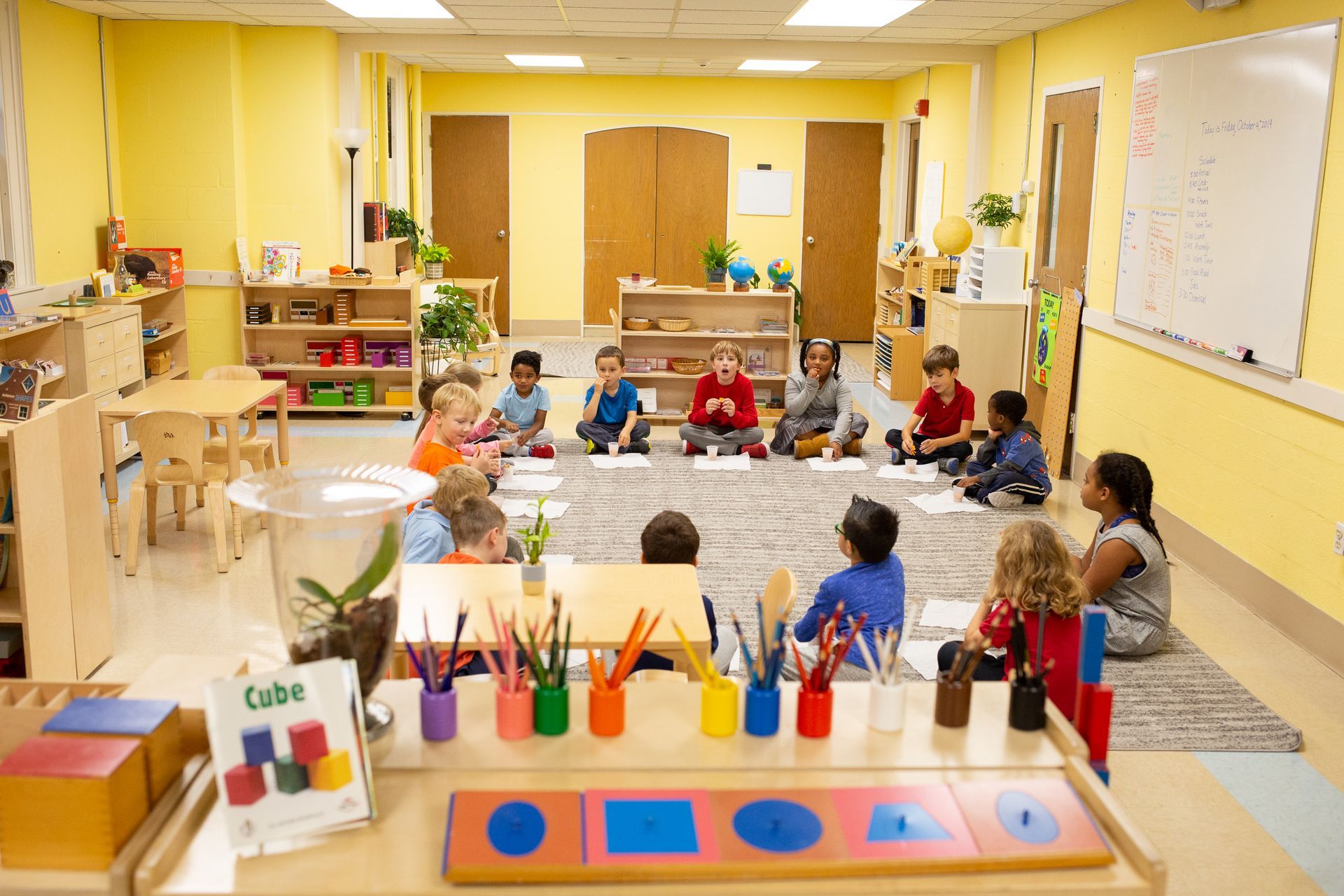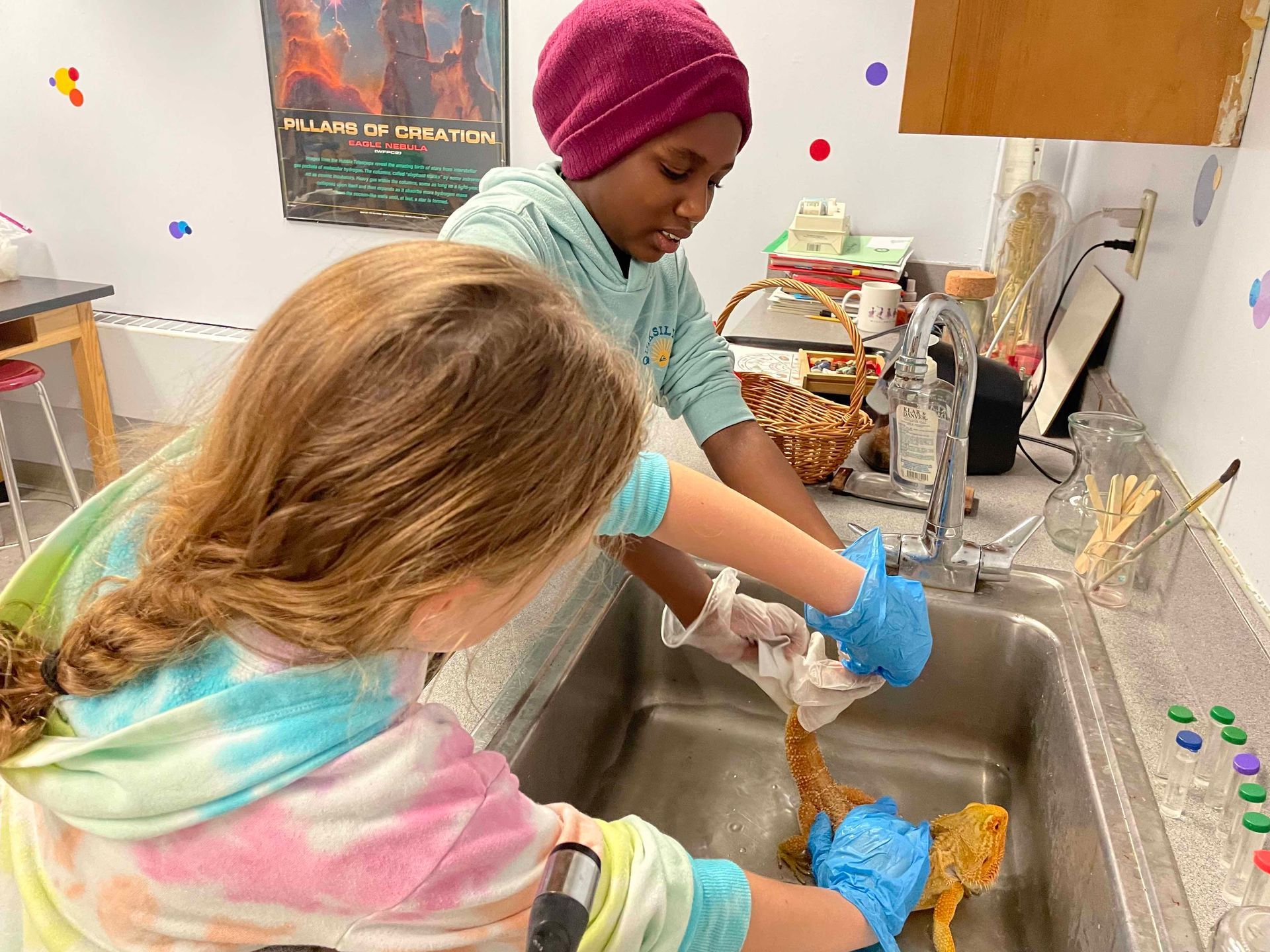
When you first step into a T.E.C. School’s Montessori classroom, you might notice something wonderfully unique: children of varying ages learning and working together in the same space. It's a hallmark of our approach, and visitors often ask us: "How can children with such different sizes and abilities all be supported, challenged, and thrive in one dynamic community?"
The answer lies in one of the deepest secrets of
Montessori pedagogy, a simple yet incredibly effective approach: the "three-year cycle." This cycle is a foundational element that underpins our holistic mission, including our vibrant STEAM curriculum, ensuring every child finds their footing, grows with purpose, and ultimately blossoms.

What is a Montessori Three-Year Cycle?
At T.E.C. Schools, children typically enter a classroom as the youngest members and then consistently remain within that same nurturing learning community for at least three years. Over the course of those transformative years, they cycle through a natural, organic rhythm of growth and development, much like a perennial plant.
- Year One: Establishing Roots & Exploration. When children first join a new classroom, it's a bit like transplanting a perennial flower: they need some time to establish their roots, observe their new environment, and begin to understand the rhythm and expectations of their new community. They are absorbing, making sense, and beginning to feel secure. This foundational year is crucial for building trust and a sense of belonging.
- Year Two: Growth & Blossom. During their second year, children are more established and, like perennial flowers, they often show significant external growth and truly begin to blossom. This is when children feel deeply comfortable and secure in their learning space, allowing them to experiment more freely, extend their learning, and engage confidently with both materials and peers. Here, we often see their individual passions, including those connected to STEAM, starting to take firmer shape.
- Year Three: Experts & Abundance. By their third year, children are the recognized experts and leaders within their community. Similar to a mature perennial flower, their growth becomes exponential and abundant. They truly blossom, demonstrating mastery and a profound understanding of their environment and the curriculum. The children who have benefited from a complete three-year cycle showcase the incredible potential that unfolds when they have had the opportunity to establish deep roots, extend themselves thoughtfully, and then have the sustained time and space to bloom in exciting and often unexpected new ways.
Evolving Roles: Nurturing Leaders and Mentors
Because children in Montessori classrooms at T.E.C. Schools are with each other for a series of years, their learning community naturally evolves into a tight-knit family. As they progress through the years together, children gain invaluable opportunities to play the crucial roles of the youngest explorer, the experimenting middle learner, and the confident oldest child. Each role comes with its own unique responsibilities and opportunities for growth.
- Younger students naturally look up to their older peers, quickly absorbing lessons through observation – from classroom etiquette to exciting advanced work. This peer modeling is incredibly powerful for inspiring aspiration and guiding self-regulation.
- The oldest students in the class step into vital roles as mentors, leaders, and even spontaneous "teachers." As they master certain skills or materials (whether it's demonstrating a complex math operation or explaining a STEAM concept), they have the authentic opportunity to share what they have learned. In this mutually beneficial process, they not only synthesize their own understanding at a deeper level but also build immense confidence and demonstrate true mastery. This experience prepares them for future leadership roles and reinforces the value of contributing to their community.
Consistency of Community: A Foundation for Bold Learning
Having a consistent and stable community for at least three years allows children to build a foundation that serves them in profound ways, fostering both academic and social-emotional growth. Beyond having the sustained time to gain mastery over challenging concepts, children establish deep, long-term relationships with their peers and the adults who guide them.
Our dedicated Montessori guides at T.E.C. Schools, with their extensive training and sensitivity to individual developmental needs, gain an unparalleled understanding of each child's unique learning styles, rhythms, and needs over these multiple years. This deep insight allows them to truly individualize presentations and interventions, recognizing precisely where and how to gently challenge and help children stretch beyond their comfort zones. As a direct result, children are able to feel secure enough to take meaningful risks in their learning, knowing they are in a supportive and predictable environment.
One of the most valuable benefits is the strong, meaningful, and supportive partnership that naturally develops between families and our Montessori guides over the course of multiple years. This consistent communication and shared understanding create a powerful support system that empowers our children and strengthens our entire T.E.C. community.
Zone of Proximal Development: Learning Together, Thinking Further
The three-year cycles inherent in Montessori mixed-age classrooms provide a unique scaffolding system, perfectly aligning with psychologist Lev Vygotsky's concept of the "Zone of Proximal Development" (ZPD). This framework suggests that children learn best when they are challenged just beyond their current independent ability, but with the support of a skilled teacher or more knowledgeable peers.
In our classrooms, this means that a younger child might observe an older peer working on a complex math material or a challenging STEAM project. The older child, having recently mastered that work, can then offer explanations or demonstrations that are perfectly pitched to the younger child's understanding, often more effectively than an adult. These supportive learning environments allow children to make critical connections and grasp concepts they wouldn’t necessarily be able to make entirely on their own. As children continuously grow within their zone of proximal development, they develop more confidence, refine new skills and abilities, and solidify their understanding through meaningful, purposeful interactions with others.
As children solidify their learning and consolidate their knowledge, they experience new possibilities for growth within a truly family-like learning community. This mixed-age experience is an essential component of what we do at T.E.C. Schools, a key to our students' holistic development, and our three-year cycles make it all possible.
Come see the benefits for yourself! We invite you to
schedule a tour to get a first-hand glimpse of our dynamic, multi-age classrooms and the transformative power of the three-year cycle in action.


